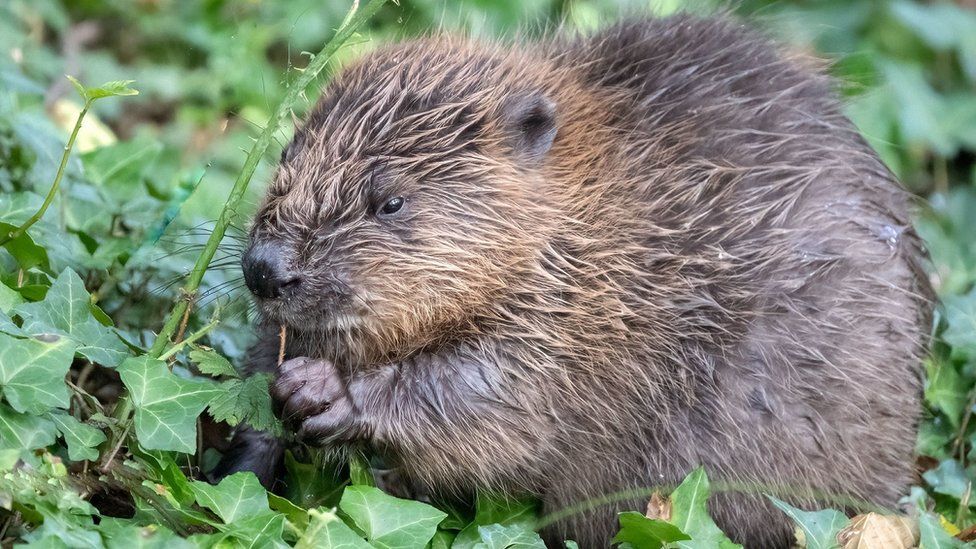ARTICLE AD BOX
 Image source, National Trust/PA
Image source, National Trust/PA
Baby beaver, Mary, named after England goalkeeper Mary Earps was born to reintroduced beavers in Somerset
By Esme Stallard
Climate and science reporter, BBC News
Bringing extinct species like beavers back to England is no longer a priority, the government said on Friday to criticism from wildlife groups.
In recent years animals and plants have been reintroduced by charities as part of efforts to restore the country's depleted biodiversity.
A recent report shows that one in six UK species are at risk of extinction.
The government said it was focused on habitat restoration and pollution.
In September more than 60 conservation organisations reported a significant decline in species due to expansions in farming and the effects of climate change.
Farmers and wildlife charities have take action in recent years to reintroduce extinct or rare species like beavers, ladybird spiders and red kites into England.
Despite the government allowing this, the Environment, Food and Rural Affairs Committee - a group of cross-party MPs - concluded in July that there was an absence of long-term plans on how to manage this.
In response, the government has now said that the "reintroduction of species is not a priority".
In its letter to the committee - which was made public on Friday - the government said it was focused on increasing biodiversity but through habitat restoration and reducing pressures from pollution. The government's environment department has come under scrutiny for not doing more to prevent sewage dumping and other forms of pollution in England's waterways.
Image source, The Wildlife Trusts/PA
Image caption,Pine martens have been reintroduced in Gloucestershire and Mid Wales
Sir Robert Goodwill, chair of the Committee, told the BBC he was "disappointed" with the government response considering species were already being reintroduced.
Bringing back extinct species is contentious issue - Sir Goodwill said that although farmers and landowners appear broadly supportive there are risks of reintroducing new species, and without clear guidance problems could arise.
A recent study showed that river barriers similar to those built by beavers can protect communities at risk of flooding.
But there have also been cases documented in Europe where beavers have built their dams in places that have damaged crops and modified rivers. And currently beavers have arrived in rivers in England without the government confirming if they have protected status - so farmers are left not knowing how they can be managed.
"We've got places like the Somerset Levels and the Fens in Lincolnshire where if we don't protect the the watercourses (from beavers) there we could see flooding," said Sir Goodwill.
Image source, PA Media
Image caption,Some species like wild boar have been reintroduced accidentally to the UK
Joan Edwards, director of policy at The Wildlife Trusts told the BBC: "Reintroducing wildlife must be part of the UK government's arsenal for tackling nature loss and climate change - it is astonishing there is no strategy for doing so."
She said there was clear evidence of the positive impact of beavers, in particular, on the land.
"The return of wild beavers can help to recreate lost wetlands, with a knock-on effect that benefits other wildlife including insects, invertebrates and birds. Beavers also slow the flow of water, which can reduce flood risks to towns and villages," she said.
Image source, PA Media
Image caption,Ospreys returned to Kielder Forest, Northumberland, for the first time in at least 200 years in 2009. This year eight chicks have been be fitted with identification rings
On Tuesday Ms Coffey was interviewed by the committee.
"I've had to choose to prioritise and I can assure you, species reintroduction ain't one of my top priorities and therefore we've stepped back away from that," she told the committee. "Ultimately we have a broader range of activities and we have to choose where we can put our resources."
But Sir Goodwill said that without some of the measures in place that the committee recommended then the government may have to spend more money compensating farmers for damage to their crops from reintroduced species or flooding of homes.
The committee called for:
- a list of priority species for re-introduction.
- an assessment of the risk of each species and proper management plans.
- better community engagement for those living and working close to new species.

 1 year ago
30
1 year ago
30








 English (US) ·
English (US) ·